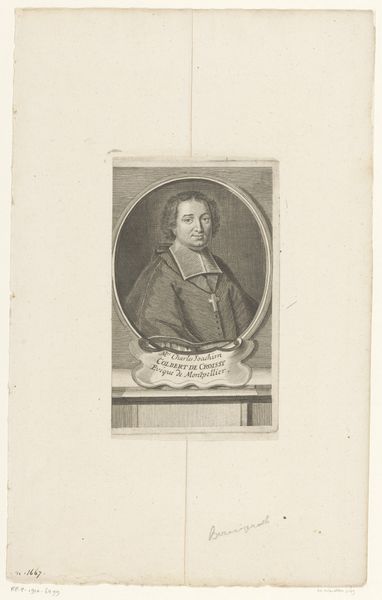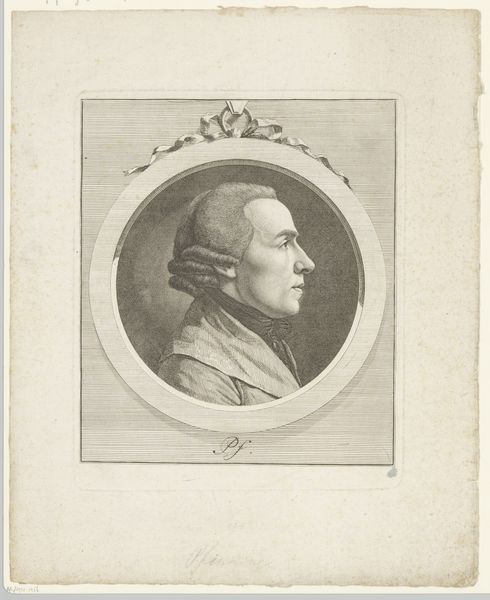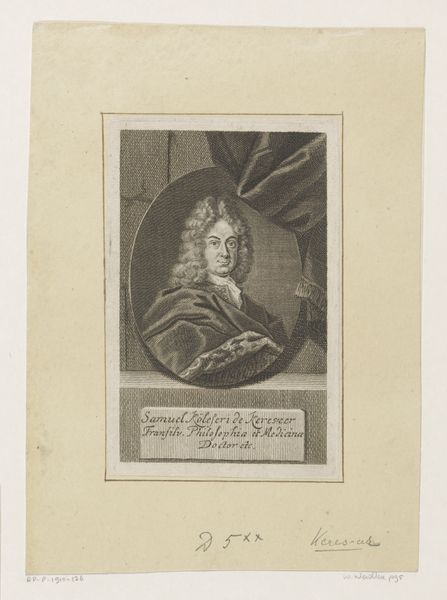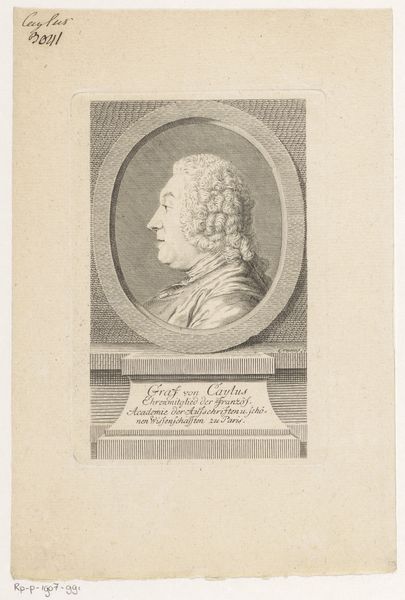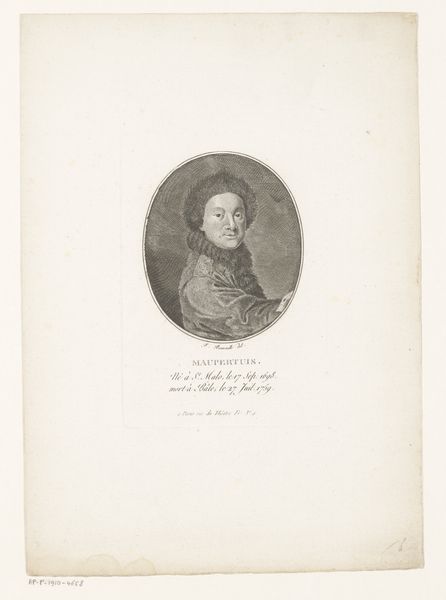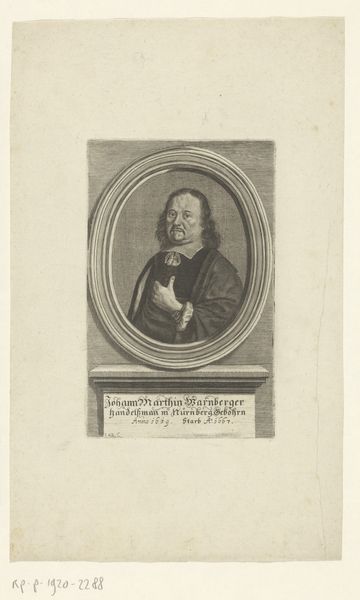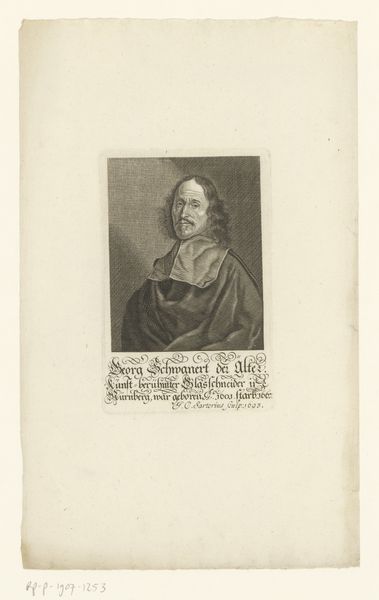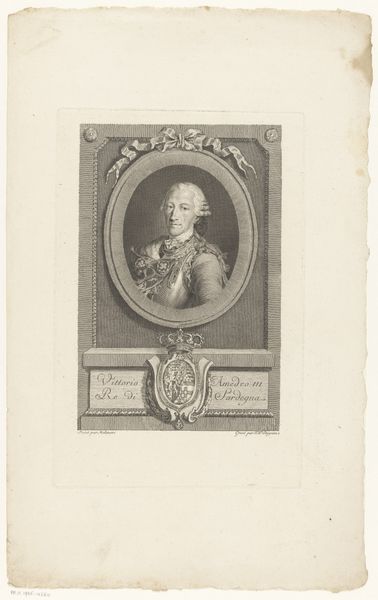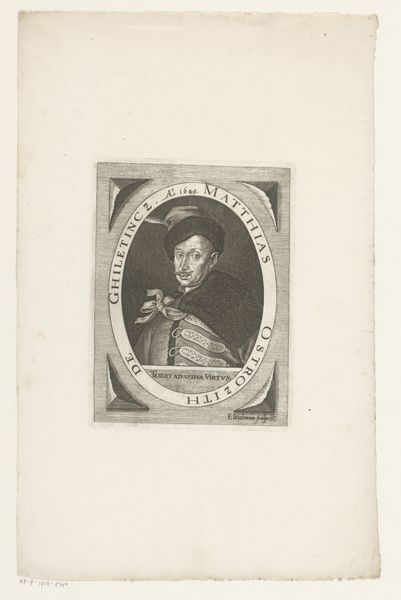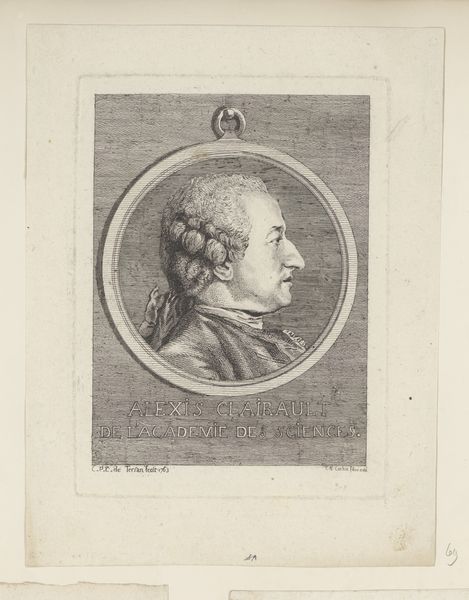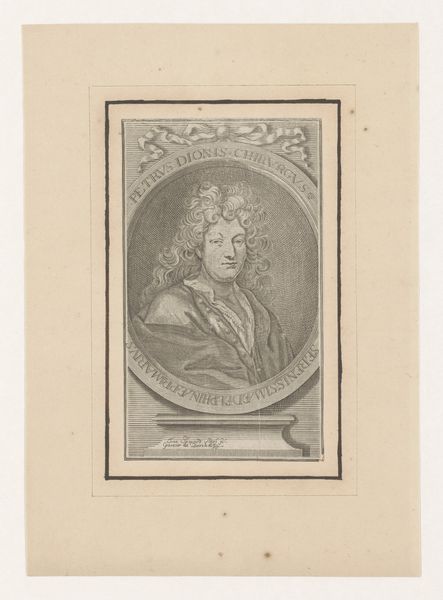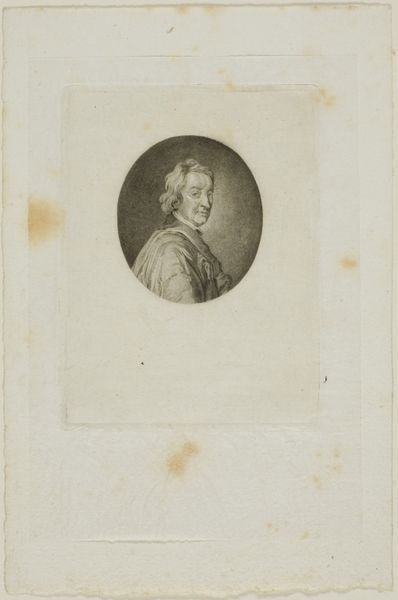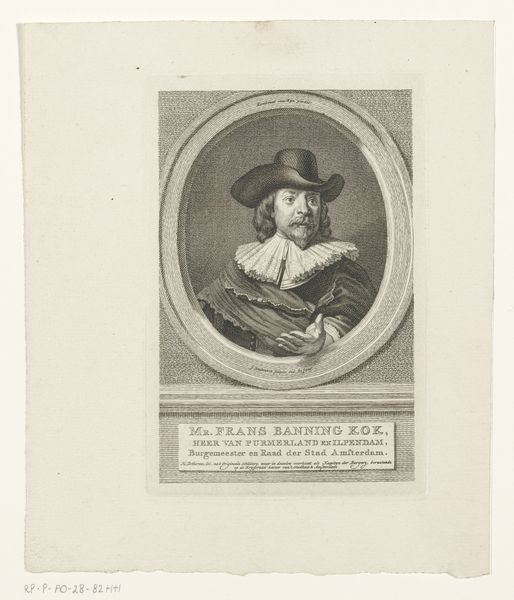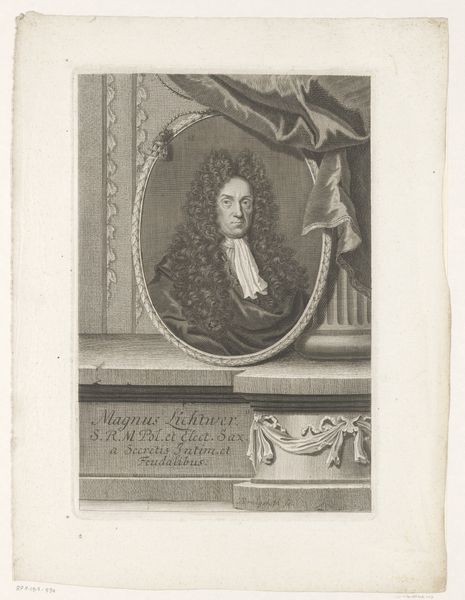
print, engraving
#
portrait
#
neoclacissism
#
aged paper
#
toned paper
#
light pencil work
# print
#
pencil sketch
#
old engraving style
#
personal sketchbook
#
ink colored
#
line
#
sketchbook drawing
#
pencil work
#
sketchbook art
#
engraving
Dimensions: height 94 mm, width 72 mm
Copyright: Rijks Museum: Open Domain
This is Leonhard Schlemmer's portrait of Johann Tischberger, made with etching, sometime in the late 18th or early 19th century. Etching is an intaglio printmaking technique where the artist uses acid to cut into a metal plate, in this case probably copper. First, the plate would be coated with a waxy, acid-resistant substance known as a 'ground'. Then, using a needle, Schlemmer would have scratched away the ground, exposing the metal underneath. The plate is then immersed in acid, which bites into the exposed areas, creating the lines that will hold the ink. Notice the dense cross-hatching used to create the shading on Tischberger's face and clothing. This is a labor-intensive process, requiring careful control of the acid to achieve the desired depth and darkness. The fine lines create a delicate, almost fragile image, perfectly suited to capturing the likeness of a respected member of society. The very nature of printmaking implies reproduction and distribution, hinting at a shift in the art world towards wider accessibility and a reflection of burgeoning bourgeois values. Seeing the work today, remember the handwork, and the social context that gave rise to this intimate portrait.
Comments
No comments
Be the first to comment and join the conversation on the ultimate creative platform.
